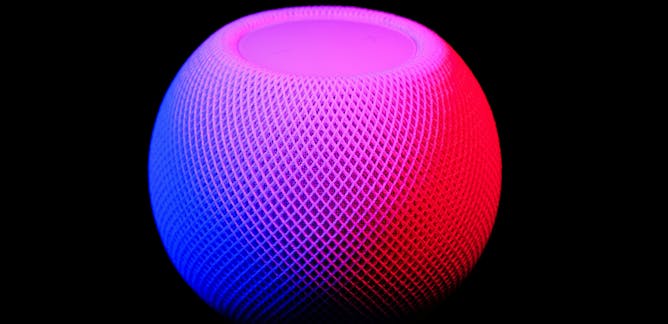
Articles on Internet of Things
Displaying 1 - 20 of 123 articles

With 17 billion internet-connected devices worldwide, AI is subtly creeping into our everyday lives – and making us more vulnerable to cyberattacks.

What are the benefits and drawbacks of putting smart technology into a ring?

WeWork’s bankruptcy casts doubt on hype that the boundaries between physical space and computer technology are dissolving.

No one has time to read the terms and conditions we are often asked to consent to. But we’re sometimes agreeing to things we would rather not.

Almost everybody uses the internet just about every day. But do you really know what the internet is?

From tractors to smartphones, consumers may own their devices but the manufacturers still often hold the keys.

The Agricultural Internet of Things is making farming more efficient. An information technology expert describes some of the challenges of working with sensors and antennas underground.

In the development of ever smarter homes, Amazon could soon have access to the maps of our houses created and stored by Roomba vacuums.

Internet-connected appliances tempt people with science fictionlike conveniences, but beneath the sparkling surface lurk potential privacy violations.

Smart devices can make our lives easier. But they also present security risks.

We believe fitness trackers keep us healthy, and connected toys keep children safe – but such devices are easily abused.

New 5G technologies also boast the raw ingredients needed to beam wireless power to small devices.

The Internet of Things will transform industry, agriculture, and our cities. But we need to consider carefully the risks as well as the rewards.

Internet technologies and the devices that enable information access and transfer are useful in crisis management. Accessing these readily available digital technologies can help community resiliency.

Australia’s new voluntary code of practice to make IoT devices more secure may expose consumers to greater risks.

For decades experts have puzzled over why most people claim to have privacy concerns, but few actually do enough about it.

The massive increase in internet-connected devices will create an informal surveillance network that could be used to target protestors and activists.

How indoor solar cells could help power the Internet of Things.

The coronavirus pandemic lays bare the many vulnerabilities created by society’s dependence on the internet. Watch the video to learn more about these issues.

Much of the world is moving online in response to the coronavirus pandemic. Society’s newly increased dependence on the internet is bringing the need for good cyber policy into sharp relief.





